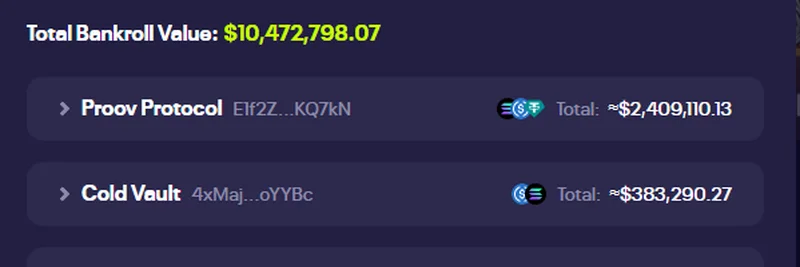In a recent thread on X, Mert from Helius Labs (@0xMert_) laid out a compelling case for why privacy might just be the next massive leap in cryptocurrency. He calls it the "last 1,000x thesis," and honestly, after reading it, it's hard not to get excited about the potential. If you're into blockchain and meme tokens, understanding privacy could be key to spotting the next big trends—after all, privacy coins have spawned their share of viral memes and community-driven pumps.
Let's break it down step by step. Mert starts by rewinding to Bitcoin's origins. Back in 2008, Bitcoin emerged as a rebel response to the financial crisis, championed by cypherpunks—folks who use cryptography to protect privacy and promote liberty. But early on, Bitcoin faced three big hurdles: legitimacy (would anyone take it seriously?), programmability (could it do more than just store value?), and privacy (how do you keep transactions hidden in a transparent ledger?).
Fast forward to today, and Bitcoin has nailed legitimacy. It's a $2 trillion asset class that's impossible to ignore. Governments, institutions, and even your skeptical uncle are dipping toes in. On the programmability front, Ethereum kicked things off by enabling smart contracts—think automated agreements that run on the blockchain without middlemen. Then Solana came along to supercharge that with blazing speed and low costs, making it perfect for DeFi apps, NFTs, and yes, those wild meme token launches.
But privacy? That's the one piece still largely unsolved, and Mert argues it's ripe for a breakthrough. He compares crypto's development to a tech tree in the game Civilization, where you unlock advancements branch by branch.
Just like in the game, Bitcoin branched into legitimacy, Ethereum and Solana handled programmability and scale, but the privacy branch—pioneered by projects like Zcash—has been waiting in the wings.
Zcash was one of the first to tackle this using zero-knowledge proofs (ZK for short). ZK is a cryptographic trick that lets you prove something is true without revealing the details—like showing you have enough funds for a transaction without exposing your whole wallet balance. It's genius for avoiding the double-spend problem (spending the same coin twice) while keeping things private. Satoshi Nakamoto himself mused about adding ZK to Bitcoin back in the day, but the tech wasn't ready.
Mert points out that Zcash was groundbreaking—it was the first to deploy ZK in production anywhere, not just in crypto. But early versions were clunky, with trust assumptions that needed ironing out. Now, the tech has matured, including not just ZK but also mixers (tools that jumble transactions for anonymity), fully homomorphic encryption (FHE, which lets you compute on encrypted data), and multi-party computation (MPC, for secure group calculations).
Why now? Timing is everything. Crypto's gone mainstream, but so have concerns over surveillance, data breaches, and regulatory overreach—especially in places like Europe. With debt crises brewing and non-state money proven viable via Bitcoin, privacy tech could explode. Plus, as speculative hype cools, the industry is circling back to its cypherpunk roots.
For meme token enthusiasts, this matters because privacy could enable stealth launches, anonymous trading, or even privacy-focused meme ecosystems. Imagine meme coins that actually protect your holdings from prying eyes—could spark a whole new wave of viral narratives.
Mert's TL;DR nails it: Bitcoin solved legitimacy, Solana and Ethereum cracked programmability, leaving privacy as the unsolved gap. That gap screams asymmetric upside—big rewards for early movers. Zcash, with its proven track record, looks positioned to lead.
If you're building or trading in blockchain, keep an eye on privacy plays. They might not be the flashiest memes today, but they could deliver that elusive 1,000x tomorrow. Check out the full thread here for more depth, and let's discuss in the comments—what's your take on privacy in crypto?



